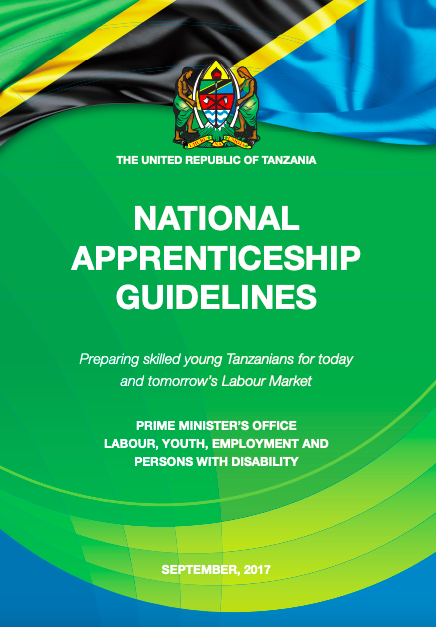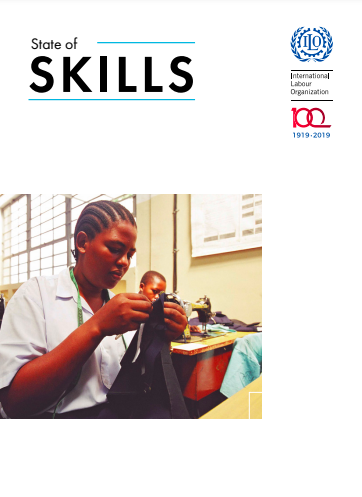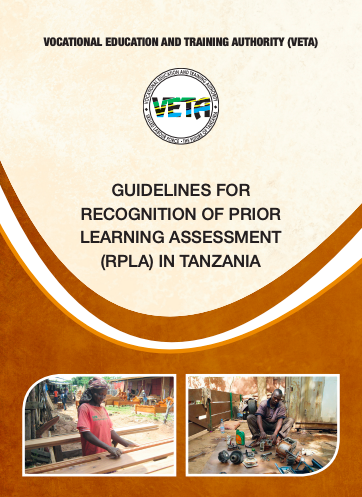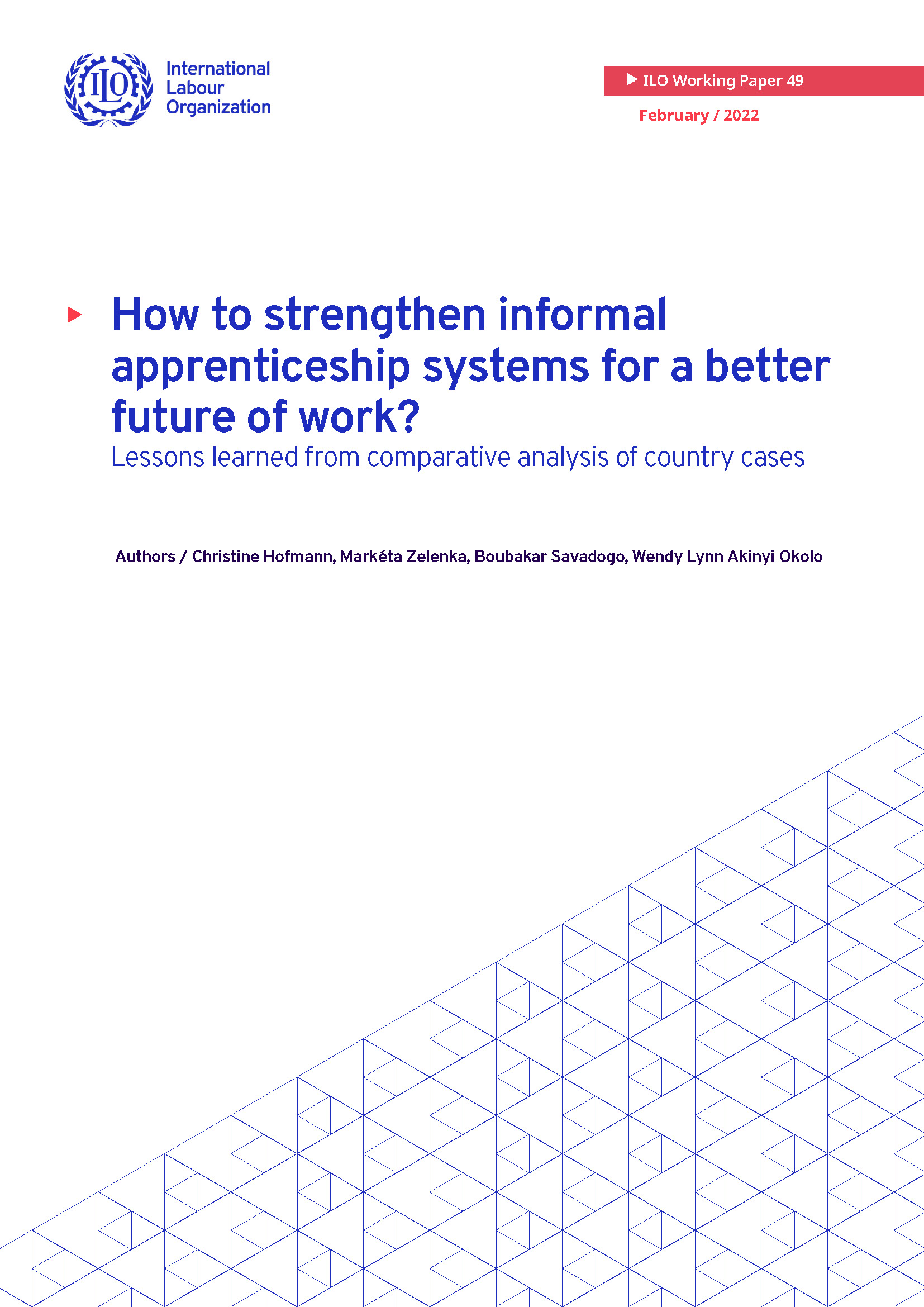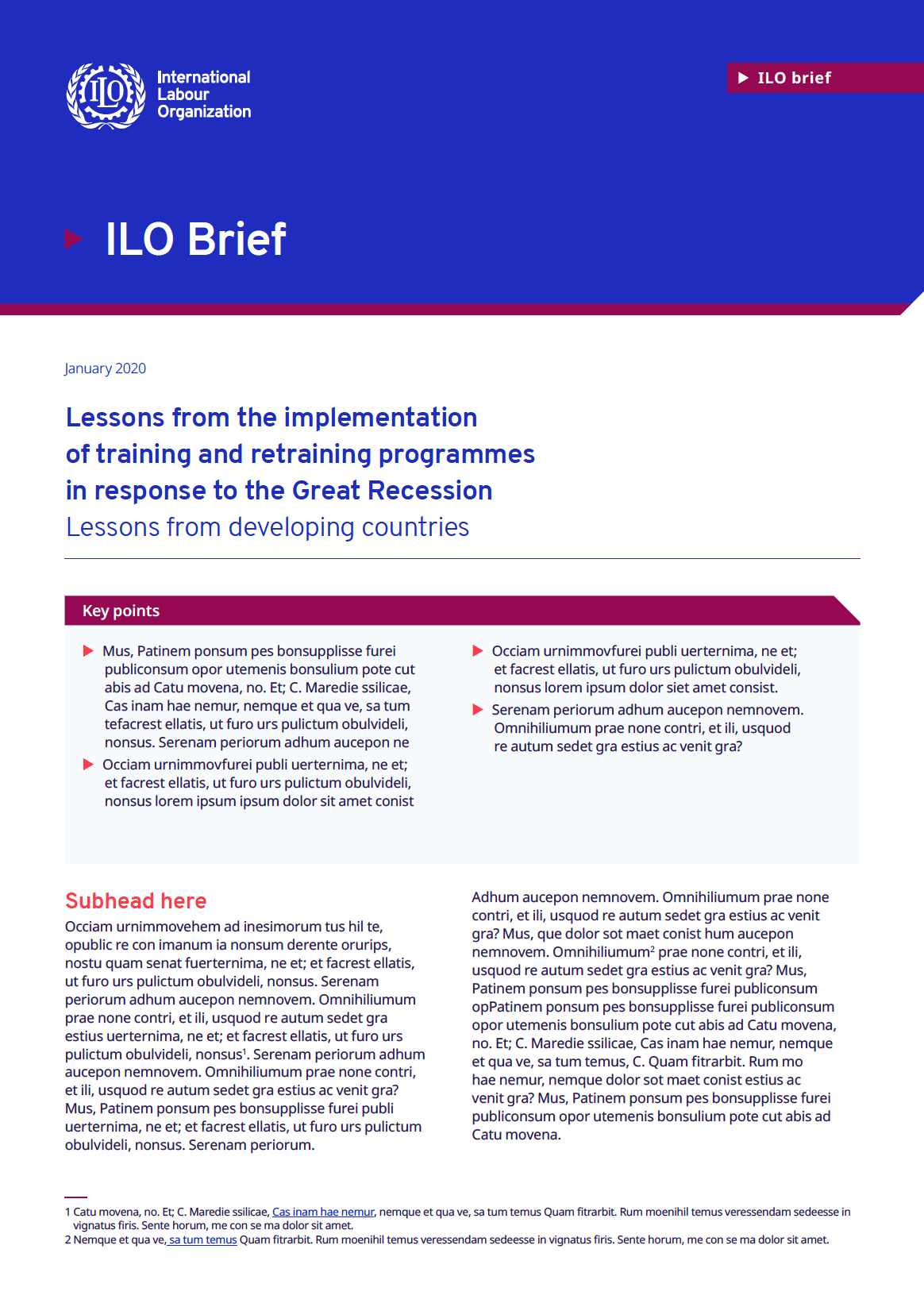República Unida de Tanzanía
This paper undertakes a meta study on informal apprenticeship in developing countries. It compares the findings of country-level research conducted by the ILO and others in the past 15 years to shed more light on apprenticeship systems in the informal economy. It discusses the features and practices of informal ap-prenticeship systems, their responsiveness to rights at work, and the effectiveness of such systems along criteria such as dropouts, training quality, and transitions to employment. The analysis is complemented by a selected number of country case studies that describe and assess the policies and programmes that were introduced during past years to strengthen and upgrade apprenticeship systems in the informal economy. The findings aim to improve understanding of this complex, heterogenous, yet self-sustained training system in the informal economy for evidence-based discussions and policy dialogue between ILO constituents and beyond.
The ILO Skills and Lifelong Learning monthly newsletter highlights recently uploaded publications, reports, research items, videos and upcoming events on skills development and lifelong learning.
Sign up to receive the Newsletter by clicking here.
The Youth Employment Programme and Skills and Employability Branch are organizing a regional workshop on the theme of enhancing youth employability and easing labour market transitions. This three-day interregional event is part of a series of ‘What Works in Youth Employment’ Knowledge Sharing Events to facilitate learning and dialogue through evidence-based ‘good practices’.
The objective of the workshop is to bring together stakeholders (including our tripartite constituents) from nine African countries (Côte d’Ivoire, Ethiopia, Kenya, Nigeria, Rwanda, Senegal, Sudan, Tanzania, and Zambia) in an interactive forum for exchange and peer learning with guidance from technical experts on effective, replicable and scalable supply side initiatives that address employability, skills demand, anticipation of skills needs and the bridges between supply and demand. A report based on exchanges and lessons learned during the workshop will be produced.
